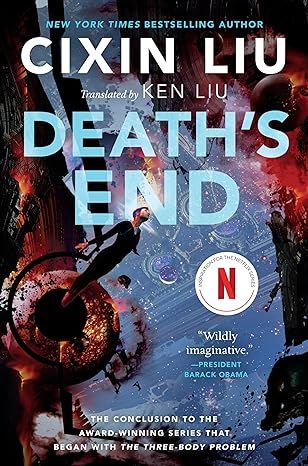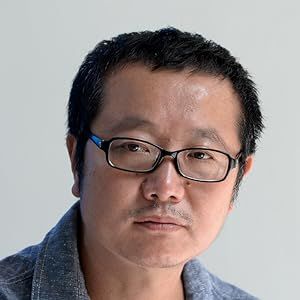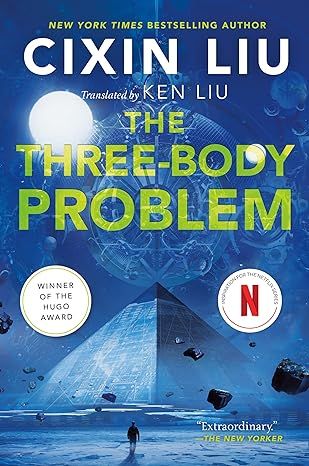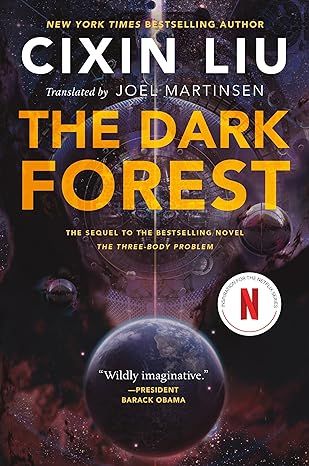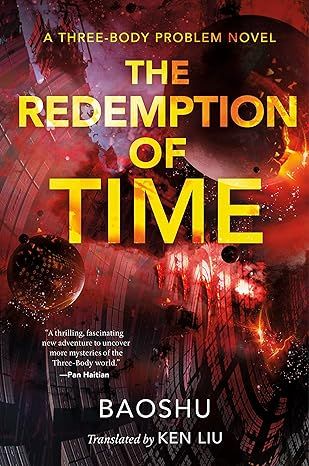Death's End (The Three-Body Problem Series, 3)
4.6
-
21,786 ratings
The inspiration for the Netflix series 3 Body Problem!
Over 1 million copies of the Three-Body Problem series sold in North America
PRAISE FOR THE THREE-BODY PROBLEM SERIES: “A mind-bending epic.”―The New York Times • “War of the Worlds for the 21st century.”―The Wall Street Journal • “Fascinating.”―TIME • “Extraordinary.”―The New Yorker • “Wildly imaginative.”―Barack Obama • “Provocative.”―Slate • “A breakthrough book.”―George R. R. Martin • “Impossible to put down.”―GQ • “Absolutely mind-unfolding.”―NPR • “You should be reading Liu Cixin.”―The Washington Post
The New York Times bestselling conclusion to the groundbreaking, Hugo Award-winning series from China's most beloved science fiction author, Cixin Liu.
Half a century after the Doomsday Battle, the uneasy balance of Dark Forest Deterrence keeps the Trisolaran invaders at bay. Earth enjoys unprecedented prosperity due to the infusion of Trisolaran knowledge. With human science advancing daily and the Trisolarans adopting Earth culture, it seems that the two civilizations will soon be able to co-exist peacefully as equals without the terrible threat of mutually assured annihilation. But the peace has also made humanity complacent.
Cheng Xin, an aerospace engineer from the early twenty-first century, awakens from hibernation in this new age. She brings with her knowledge of a long-forgotten program dating from the beginning of the Trisolar Crisis, and her very presence may upset the delicate balance between two worlds. Will humanity reach for the stars or die in its cradle?
Kindle
$11.99
Available instantly
Audiobook
$0.00
with membership trial
Hardcover
$31.99
Paperback
$16.19
Ships from
Amazon.com
Payment
Secure transaction
ISBN-10
0765386631
ISBN-13
978-0765386632
Print length
624 pages
Language
English
Publisher
Tor Books
Publication date
September 04, 2017
Dimensions
6.15 x 1.6 x 9.2 inches
Item weight
1.54 pounds
Frequently bought together
Popular Highlights in this book
The ultimate fate of all intelligent beings has always been to become as grand as their thoughts.
Highlighted by 4,029 Kindle readers
Weakness and ignorance are not barriers to survival, but arrogance is.
Highlighted by 3,359 Kindle readers
The child that was human civilization had opened the door to her home and glanced outside. The endless night terrified her so much that she shuddered against the expansive and profound darkness, and shut the door firmly.
Highlighted by 2,011 Kindle readers
Product details
ASIN :
B00WDVKZY0
File size :
10747 KB
Text-to-speech :
Enabled
Screen reader :
Supported
Enhanced typesetting :
Enabled
X-Ray :
Enabled
Word wise :
Enabled
Editorial Reviews
Praise for the Three-Body Problem series:
"Wildly imaginative."―President Barack Obama
“A mind-bending epic.”―The New York Times
“Absolutely mind-unfolding. . . . a science-fiction epic of the most profound kind.”―NPR
“A breakthrough book . . . a unique blend of scientific and philosophical speculation, politics and history, conspiracy theory and cosmology.”―George R. R. Martin
"Liu Cixin's writing evokes the thrill of exploration and the beauty of scale. . . . Extraordinary."―The New Yorker
“[Liu turns] technically complex and existentially dreadful ideas into books that are impossible to put down.”―GQ
“A fascinating novel of ideas."–TIME
"The best kind of science fiction, familiar but strange all at the same time."―Kim Stanley Robinson
"Remarkable, revelatory, and not to be missed."―Kirkus Reviews, starred review
"Fans of hard SF will revel in this intricate and imaginative novel."―Publishers Weekly, starred review
“War of the Worlds for the 21st century.”―Wall Street Journal
“Liu’s picture of humanity’s place in the cosmos is among the biggest, boldest and most disturbing we’ve seen.”―Los Angeles Times
“Provocative.”―Slate
“A gripping and haunting sci-fi mystery.”―Cosmopolitan
"A must-read in any language."―Booklist
Sample
PART I
May 1453, C.E.
The Death of the Magician
Pausing to collect himself, Constantine XI pushed away the pile of city-defense maps in front of him, pulled his purple robe tighter, and waited. His sense of time was very accurate: The tremor came the moment he expected it, a powerful, violent quake that seemed to originate from deep within the earth. The vibrating silver candelabra hummed, and a wisp of dust that had sat on top of the Great Palace for perhaps a thousand years fell down and drifted into the candle flames, where the motes exploded in tiny sparks.
Every three hours—the time it took the Ottomans to reload one of the monstrous bombards designed by the engineer Orban—twelve-hundred-pound stone balls battered the walls of Constantinople. These were the world’s strongest walls: first built by Theodosius II during the fifth century, they had been continually reinforced and expanded, and were the main reason that the Byzantine court had survived so many powerful enemies.
But the giant stone balls now gouged openings into the walls with each strike, like the bite of an invisible giant. The emperor could imagine the scene: While the debris from the explosion filled the air, countless soldiers and citizens rushed onto the fresh wound in the walls like a swarm of brave ants under a sky full of dust. They filled in the break with whatever was at hand: bits and pieces taken from other buildings in the city, flaxen-cloth bags of earth, expensive Arabic carpets.… He could even imagine the cloud of dust, steeped in the light of the setting sun, drifting slowly toward Constantinople like a golden shroud. During the five weeks the city had been under siege, these tremors had come seven times a day, spaced as regularly as the strokes of some colossal clock. This was the time and rhythm of another world, the time of heathens. Compared to these tremors, the ringing of the double-headed eagle copper clock in the corner that represented the time of Christendom seemed feeble.
The tremors subsided. After a while and with an effort, Emperor Constantine pulled his thoughts back to the reality before him. He gestured to let the guard know that he was ready for his visitor.
Phrantzes, one of the emperor’s most-trusted ministers, came in with a slender, frail figure trailing close behind.
“This is Helena.” Phrantzes stepped aside, revealing the woman.
The emperor looked at her. The noblewomen of Constantinople tended to favor clothes bedecked with elaborate decorative elements, while the commoners wore plain, shapeless white garments that draped to the ankles. But this Helena seemed a combination of both. Instead of a tunic embroidered with gold thread, she wore a commoner’s white dress, but over it she draped a luxurious cloak; however, instead of the purple and red reserved for the nobility, the cloak was dyed yellow. Her face was enchanting and sensual, bringing to mind a flower that would rather rot in adoration than fade in solitude.
A prostitute, probably one who did rather well for herself.
Her body trembled. She kept her eyes lowered, but the emperor noticed that they held a feverish glow, hinting at an excitement and zeal rare for her class. “You claim the powers of magic?” the emperor asked.
He wanted to conclude this audience as quickly as possible. Phrantzes was usually meticulous. Of the approximately eight thousand soldiers defending Constantinople now, only a small number came from the standing army, and about two thousand were Genoese mercenaries. Phrantzes had been responsible for recruiting the rest, a few at a time, from the city’s inhabitants. Though the emperor wasn’t particularly interested in his latest idea, the capable minister’s standing demanded that he at least be given a chance.
“Yes, I can kill the sultan.” Helena’s quiet voice quivered like silk strands in a breeze.
Five days earlier, standing in front of the palace, Helena had demanded to see the emperor. When guards tried to push her away, she presented a small package that stunned the guards. They weren’t sure what she was showing them, but they knew it was not something she should have possessed. Instead of being brought to the emperor, she had been held and interrogated about how she had acquired the item. Her confession had been confirmed, and she was then brought to Phrantzes.
Phrantzes now took out the small bundle, unwrapped the flax cloth, and placed the contents on the emperor’s desk.
The emperor’s gaze was as stupefied as those of the soldiers five days ago. But unlike them, he knew immediately what he was looking at.
More than nine centuries earlier, during the reign of Justinian the Great, master craftsmen had cast two chalices out of pure gold, studded with gems and glowing with a beauty that seized the soul. The two chalices were identical save for the arrangement and shapes of the gems. One of the two was kept by successive Byzantine emperors, and the other one had been sealed along with other treasures into a secret chamber in the foundation of Hagia Sophia in 537 C.E., when the great church was rebuilt.
Read more
About the authors
Cixin Liu
Liu Cixin, born in June 1963, is a representative of the new generation of Chinese science fiction authors and recognized as a leading voice in Chinese science fiction. He was awarded the China Galaxy Science Fiction Award for eight consecutive years, from 1999 to 2006 and again in 2010. His representative work The Three-body Problem is the BEST STORY of 2015 Hugo Awards, the 3rd of 2015 Campbell Award finalists, and nominee of 2015 Nebulas Award. His works have received wide acclaim on account of their powerful atmosphere and brilliant imagination. Liu Cixin's stories successfully combine the exceedingly ephemeral with hard reality, all the while focussing on revealing the essence and aesthetics of science. He has endeavoured to create a distinctly Chinese style of science fiction. Liu Cixin is a member of the China Writers' Association and the Shanxi Writers' Association.
Read more
Reviews
Customer reviews
4.6 out of 5
21,786 global ratings
H. P.
5
Guys, it’s time for some Dark Forest deterrence game theory.
Reviewed in the United States on February 15, 2017
Verified Purchase
With its completion with Death’s End, I can now say that the Remembrance of Earth’s Past is my all-time favorite science fiction series (says the noob of a sci fi fan). It opens just like you would expect the final volume of an insanely ambitious hard science fiction series to open, with a magician offering to help the emperor prevent the Fall of Constantinople in 1453. Wait, what? This has never been a series interested in hewing to convention. And so we get a story spanning a few million years (specifically, 1453 – 18906416).
“Once, ancient Romans had whistled in their grand, magnificent baths, thinking that their empire, like the granite that made up the walls of the pools in which they floated, would last forever. No banquet was eternal. Everything had an end. Everything.”
(SPOILERS for the first two books in the Remembrance of Earth’s Past series below.)
Did I say that Death’s End is insanely ambitious? It purports to encompass most of the history of humanity, and of the universe, within its scope. And, indeed, all things must end. But nor is “life . . . nothing but a fragile, thin, soft shell clinging to the surface of this planet.” As another work of science fiction put it, “Life finds a way.”
After a prologue that is bizarre and kind of awesome and strictly not necessary, and a brief interlude with Yang Dong shortly before she commits suicide, the story proper opens shortly after the Trisolaris invasion fleet becomes public knowledge (the Crisis Era). Yun Tianming is a sad sack, a loner, an entirely undistinguished scientist. But the thread of his life has the chance to play a greater role in the pattern of human history when it comes back into contact with his college crush, Cheng Xin.
Yun Tianming is a bit of a head fake. Cheng Xin is not only Death’s End protagonist, but is far more central to the story, heck, to the entire series, than any of the characters from the first two books. Cheng Xin is, in at least one way, the best protagonist in the series. That is, she is the most memorable. Not the best, but she is the easiest to keep distinct in your mind as a character. Or at least that was my experience. She is no Luo Ji, though. The Trisolarans are right—Luo Ji is a mighty warrior. We do see Luo Ji again, but Cheng Xin’s story dominates the book in a way that Wang Miao and Luo Ji never did.
The Wallfacer project isn’t the UN’s only response to the Trisolarans. Cheng Xin becomes a part of the parallel Staircase Program. The Staircase Program ultimately settles on a truly science fictional idea—using nuclear pulse propulsion to send a frozen brain light years through space.
“At the same time, in Russia and China, Topol and Deongfeng missiles were also rising in the sky. The scene resembled a doomsday scenario, but Cheng Xin could tell by the curvature of the rocket trails that these were orbital launches instead of intercontinental strikes. These devices, which could have killed billions, would never return to the surface of the Earth. They would pool their enormous power to accelerate a feather to 1 percent of the speed of light.”
We’re not going to spend the entire book stuck back in the Crisis Era, though. The same hibernation Luo Ji took advantage of in The Dark Forest is available to Cheng Xin, and she makes good use of it. When she first reawakens, Luo Ji singlehandedly holds the Trisolarans at bay as Swordholder. He wields Dark Forest deterrence.
Ok, now this is REALLY SPOILER territory for The Dark Forest. In The Dark Forest, humans discovered why the universe is so quiet. Given an infinite number of stars, there are infinite habitable planets, infinite civilizations, infinite supercivilizations, and infinite supercivilizations that view any intelligent life as a potential threat. And if you’re a supercivilization, you don’t need to build a system the size of a small moon to destroy a planet.
“‘Dark forest attacks all share two qualities: one, they’re casual, two they’re economical.’ ‘Elaborate, please.’ ‘These attacks are not part of some interstellar war, but a matter of conveniently eliminating possible threats. By “casual,” what I mean is that the only basis for the attack is the exposure of the target’s location. There will be no reconnaissance or exploration conducted against the target beforehand. For a supercivilization, such exploration is more expensive than a blind strike. By “economical,” what I mean is that the attack will employ the least expensive method: using a small, worthless projectile to trigger the destructive potential already present in the target star system.’”
At least now we know what happened to the Moon in Seveneves.
If that doesn’t sound bad enough, things get worse.
Death’s End continues and expands on the best aspect of The Dark Forest—balls-to-the-wall crazy science, and lots of it. There are gigantic space cities. “[A] regular cylinder that stimulated gravity with the centrifugal force generated by spinning. With a length of seven kilometers, its useable interior surface area was 659 square kilometers, about half the sizes of ancient Beijing. Once, about twenty million inhabitants had lived here.” There are a few dozen more, like that or not. There is light speed travel. Well, near-light speed travel—“If there really were a Creator, the only thing he welded shut in all Creation was the speed of light.” And then there are antimatter weapons, artificial black holes, multiple dimensions, a circumsolar particle accelerator, and, for lack of a better word, vacuoles.
But the Remembrance of Earth’s Past series has always been science fiction with a capital SCIENCE. Not only does Death’s End have a more relatable protagonist. It has, by a fair margin, the best writing of the series, especially the pacing and plotting. Liu (The Lius?) can throw out a hell of a wham line. “Tianming, did you know that the euthanasia law was passed specifically for you?”
By the way, the Trisolarans make great villains (I’m not so sure they qualify as antagonists; the antagonist is more often physics and humanity’s current understanding of it.) They aren’t wantonly cruel, but they give as little thought to humanity’s pain as the wolf gives that of the sheep. One trend in modern villainy I’ve really come to find annoying is the bad guy going out of his way to show just how EVUL he is. Think Alan Rickman’s Sheriff of Nottingham killing Guy of Gisbourne for little to no reason. In reality, even despots need allies. Apropos, I just finished reading a biography of King John. He had a distinct tendency toward cruelty, and it made him a weak king. Tywin Lannister wouldn’t have been the most feared man in England, he would have been the most hated, and it would have cost him power. One of the high marks for Amazon’s Sneaky Pete is that the bad guy played by Bryan Cranston is so rational, which doesn’t stop him from being evil but does make him a much more dangerous foe. Ok, digression over.
The Remembrance of Earth’s Past has always been chock full of social commentary, albeit rarely of the Anvilicious sort (perhaps aided by the language and cultural barriers). He sees environment as having an enormous influence on human society, and humans also as being prone to cyclical thinking reacting against the past as much as the environment. Thus humanity vacillates wildly: “The repressive militaristic uniformity of the Great Ravine; the optimism and romanticism of the latter half of the Crisis Era; the hedonistic freedom and indolence of the Deterrence Era.” Like Joe Haldeman in The Forever War, Liu touches on the idea of a trend toward feminization. Men in the Deterrence Era are so feminine that Cheng Xin initially doesn’t realize that they are men. Liu seems to tie this directly to a “half century of peace and ease brought about by the Deterrence Era [that] accelerated the trend.” When things get hard again later, the trend reverses. I’m not so sure. It is perhaps no accident that Haldeman and Liu are both men. If you don’t think “masculinity, as traditionally defined, [i]s considered an ideal,” just pick up a romance novel. Any era that makes Mike Rowe a sex symbol still puts a premium on masculinity.
I find Death’s End, and the series in general, most fascinating, though, as a product of atheism. Not just a work influenced by atheism, or the product of an atheist (I have no idea if Cixin Liu is or isn’t), but a work that is the product of an atheistic society. And not just in the more direct ways it addresses religion (“The discovery of the dark forest state of the universe was a giant blow to most major religions, especially Christianity”). Or even Cheng Xin repeatedly playing the role of either Eve or Messiah (“I want to tell all those who believe in God that I am not the Chosen One. I also want to tell all the atheists that I am not a history-maker. I am but an ordinary person.”)
I distinguish between a work written by an atheist and the product of an atheistic society because works written by Western atheists, especially American atheists, are still working from essentially a Judeo-Christian perspective. Even if they are reacting against it, their work can still be defined in relation to it. The typical nihilism in modern storytelling, then, is an act of rebellion that we can try to rationalize away—for there to be a rebellion, there must be a dominant order. The nihilism of Death’s End, on the other hand, is pervasive, and thus terrifying. Other books are dark in a way that makes you happy you can set them aside and return to normal life after you’re done reading. The darkness of Death’s End is fundamental, and reaches beyond the four corners of the book. The Trisolaran threat, the threat of a Dark Forest strike, the mindboggling timescale, space itself, all serve to reinforce that underlying nihilism. After all, is there anything more frightening than space to the atheist? They look up and see not the glory of God’s creation but instead an infinite emptiness creating ever more oppressive loneliness. Liu returns to it, again and again.
“Death is the only lighthouse that is always lit.” “The child that was human civilization had opened the door to her home and glanced outside. The endless night terrified her so much that she shuddered against the expansive and profound darkness, and shut the door firmly.” “She finally understood how she was but a mote of dust in a grand wind, a small leaf drifting over a broad river.”
But because I could not so easily dismiss it, I was left wondering as I read the book, and am left wondering still today weeks after finishing it, whether it meant as hopeful. Keynes was right. “In the long run we are all dead.” Toggle the end date for your book far enough and you’ll get there. Even the Bible ends with Revelation. Humanity escapes catastrophe miraculously, but it’s going to get us all eventually.
And so we return to the opaque allegory of Cheng Xin, our Eve and Messiah. Is she savior of bringer of destruction? Is her weakness a damnation of us or merely of herself? Is it even really weakness at all?
Read more
131 people found this helpful
Josh Mauthe
5
In which the series ends as it lived: complex, thoughtful, epic and intimate at once
Reviewed in the United States on December 18, 2018
Verified Purchase
It's hard to know where to begin talking about The Three-Body Problem trilogy (officially known as the Remembrance of Earth's Past series), a truly staggering piece of science-fiction written by Chinese author Cixin Liu and translated to English by Ken Liu and Joel Martinsen (Liu did books 1 and 3, while Martinsen did 2). A trilogy that spans literally thousands of years, deals with quantum physics, game theory, sociology, religion, space exploration, space colonization, and more, all driven by the nature of first contact with alien intelligence - there's a lot going on in this series, and that's before you start realizing just how much Cixin (reminder: Chinese names are traditionally written with the family name first and the given name second) truly takes on the advanced science of his ideas. And yet, when you finish it, you realize that you've read something truly incredible - a piece of hard science-fiction whose ambition, scope, richness, and ideas are impossible not to find yourself thinking about for days afterward.
Death's End, the series' final volume, feels like yet another shift in the series, just as The Dark Forest was a shift from The Three-Body Problem. Because if the first two volumes were about how we come to terms with the fact that we're not alone in the universe, the final volume is about what it's like to realize that you - and every other civilization that's ever lived - are limited in your time, and might one day have no choice but to end?
Once again using the previous book as a launching point, Death's End takes on the uneasy stalemate we were left with, but watches as things shift quickly out of control in the exact way the end of The Dark Forest feared they might. Just like the others, Death's End is undeniably the final part of this saga, but it feels like its own book, giving us another new central character and a very different tone, one that finds itself wondering which is more important: survival or morality? And as usual, Cixin doesn't believe in easy answers.
Spanning even more time than the other books, Death's End unfolds on an epic scale, as humanity tries to find a way to prevent itself from being viewed as a threat by the rest of the galaxy. But is the sacrifice worth it - in other words, is safety so important that we should cripple ourselves as a race? Do we escape and leave our planet behind, setting out as nomads across the galaxy? Or do we try to intimidate others, showing that we're not to be messed with? Death's End deals with these questions as it has in the other novels, diving into the science, the game theory, and the objections, and giving readers the sense that sometimes, there are no easy answers to be given.
Indeed, what's so compelling about Death's End is the main character, who takes choices that so often feel like the wrong ones for a situation - I often found myself almost screaming at her for being wrong...and yet, you understand why she's doing them, and can almost agree. Where do we draw the line between survival and being a monster? What's acceptable to do in order to save ourselves? And does it truly matter, on a large enough time scale?
Over the course of Death's End, Cixin draws all of the series' various threads into focus thematically, making it clear that this is a series about recontextualizing our place in the universe and how we would react to that. But he's done so, once again, by focusing on a small group of characters, advanced and thoughtful explorations of science and philosophy, and a story that's engrossing on both the macro and micro level. And while the series comes to an appropriately complex, epic ending, I love how even to the end, Cixin makes it equally about the larger questions and about these characters and the choices they have to make - and their own emotional stakes as well.
To explain this series is a difficult challenge, to put it mildly. This is a series that spans a huge amount of time, deals with advanced scientific concepts in complex terms, grapples with rich philosophical and political ideas, debates questions without easy answers, and gives you a scope that can be daunting. It's a story of alien invasions, yes, but one in which the action sequences we're so used to are replaced with existential dread, a rethinking of our own lives, and a fear of the unknown that's hard to quantify. It's also the story of people caught up in these times, trying to give themselves a good life while never forgetting the larger questions of their era, and juggling their own fears with fears for humanity. In other words, it's what hard science-fiction is great at - thoughtful questions, big ideas, and speculation, all of which change the way you think about the world.
This series is a truly incredible achievement, one that honestly left me a bit staggered and reeling as I attempt to think about it all, but one that I love all the more for what it accomplishes. If you're a hard science-fiction fan, or simply someone who loves dealing with the complex ramifications of common ideas, this is a must read series. I've never read anything like it in my life, and I'm a richer person for the ideas it's inspired me to think about.
Read more
47 people found this helpful
Seamus X. Li
5
A harrowing epic
Reviewed in the United States on September 27, 2016
Verified Purchase
Plenty has been written about the extraordinary imaginativeness and story-telling prowess of Liu Cixin in this thought-provoking book. Having just finished the trilogy after just over a week of obsessive reading, I’ll share a few thoughts as a means of decompressing from this harrowing epic.
I read the first two volumes in Chinese and the third in English, mainly because it became too labored an effort to read the transliterated foreign proper nouns and technical words in Chinese (for me, anyway), and I can attest to the quality of the translation and its loyalty to the original. It felt as if I read all three books seamlessly in the same language. Although certain things are inevitably lost in translation, Ken Liu, as an accomplished writer himself, certainly compensated for the loss with innovations of his own. My only complaint has to do with certain word choices. For example, pinnace and dinghy are perhaps neither familiar to most readers nor appropriate terms for astronautic vehicles, and at times certain passages are unnecessarily grandiloquent while at others overly casual when exploring scientific and philosophical concepts. I was especially dismayed that the end of a fairy tale in the story opted for a word-for-word translation instead of “and they lived happily ever after,” despite that’s exactly what the source material means, and it was the only moment that I felt like I was reading a translation.
It is important to point out that although the three books complete the same story arc in a mostly chronological order, they involve very different scale, scope, and more importantly, themes. Emotionally, each book is fully resolved at the end. In this regard, the first book, though a thorough page turner and winner of the Hugo Award, perhaps has the least depth of the three.
One major theme of the first book is certainly the existential crisis that can arise out of either failure to grasp reality or loss of faith in humanity, and the second book inverts that theme to become the humanity’s shifting beliefs in reality and faith when faced with a crisis of existence. Death’s End, on the other hand, annihilates any notion that we may have of both crisis and existence.
Romantic love evolves along with the installments. The Three Body Problem has a cynical notion of love, and the stories of various marriages are marked by betrayal, indifference, and lovelessness. In Dark Forest, love is an ideal that ultimately proves to be an illusion. In Death’s End, love is concrete with cosmic consequences, yet at the same times becomes the most elusive and utterly devastating.
The narrative structure of Death’s End is also different compared to the previous two books. It doesn’t have the air of mystery of The Three Body Problem that is imposed by an unknown entity, or the intentional concealment of Dark Forest that plays smoothly into the Wallfacer Project. Instead, the story unfolds in a straightforward manner, but every decision made has far reaching consequences that you may not see for hundreds of pages, which in turn are foretold by minute details before they are revealed. There is one subtle but brilliant point a third into the book where the Trisolaran emissary sadistically admonishes the forlorn protagonist that the universe is not a fairy tale. It may seem like a mundane cliché by a cartoonish villain, but this point ties together the entire trilogy.
The last installment, like the previous two, pays ample homage to other works of science fiction, sometimes covertly. It is interesting, however, that Liu also subverts elements from his prior stories in the trilogy. Similarly, Ball Lightening, of which a weaponized version is mentioned repeatedly in the second book, is an earlier eponymous novel of his. Three short stories come to mind: The Wandering Earth, The Rural Teacher, and a third one that may reveal too much plot by its title alone. The Wandering Earth tells the story of a human society that tries to escape the Sun that is shifting out of main sequence unexpectedly early by making Earth itself into a giant spaceship in order to fly to, ironically, Alpha Centauri, the Trisolaran home world. A specific object that appeared in The Wandering Earth is mentioned twice in Death's End, and becomes a powerful symbol at the very end of the novel. The Rural Teacher also deals with a fertile universe and the destruction of stellar systems, but unlike the Dark Forest, that universe is much more benevolent toward civilizations.
Given the limited scope of the first book and the impeded scientific progress in the second, Death’s End is the only part of the trilogy to expansively explore frontier scientific ideas. The scientific foundations of the book are mostly solid and airtight, even when it feels dubious as observed by characters. Artistic licenses are only taken when it involves speculations far beyond even the frontiers of our current scientific understanding. However, one problematic aspect has to do with traveling and manipulating objects in four-dimensional space, as the novel implies that distance in 3D space can be shortened by traveling in the fourth dimension, which is incompatible with orthogonality of dimensions in the Euclidean part of space-time, and there is no metric shortening of the lower-dimensional distance by traveling in any direction in the higher-dimensional space. Of course, it is certainly possible that the local geometry of said fictional space is non-Euclidean.
The author does a superb job confounding the philosophical center of the books with a very comprehensive treatment of the different beliefs in science, society, politics, religion, gender, human nature, life, etc., both through an interspersed objective omniscient narrator and through the subjective thoughts of opaque characters. Indeed, there is no true villainy in the trilogy, even when we’re dealing with genocidal alien invaders and mundicidal star destroyers. However, there remains a palpable degree of ethnocentrism and, more problematically, androcentrism that belies the author's ambitious big picture of cosmic proportions. Though the male gaze is prevalent in the first and second books, it nonetheless reflects the inner worlds of the male protagonists, if not the author himself, from an exceedingly patriarchal society. Yet what Liu perceives to be the difference between “masculine” and “feminine” values cannot be reconciled even at cosmic scales, despite the author’s clear intention to absolve and diminish all sins, aggression and weakness alike, in the grand schemes of the Dark Forest universe. It is disappointing, but forgivable.
Many critics think that Death’s End is the best of the trilogy, including the translator. I disagree. Liu has written three entirely unique books out of the same story, one may even argue that they’re written in three different genres, and each succeeds and excels on its own equal footing. Nonetheless, Death’s End is the grandest, and it will blow your mind.
Read more
196 people found this helpful
Joe Karpierz
5
wonderful, full of ideas
Reviewed in the United States on July 16, 2017
Verified Purchase
DEATH'S END brings popular Chinese science fiction author's Remembrance of Earth's Past trilogy (begun with Hugo winner THE THREE BODY PROBLEM) to a rousing, fulfilling, and moving conclusion. It is a story that spans millions of years and multiple universes. It is strange, wonderful, full of ideas, and thought provoking. It is grand in scope and despite that, personal in nature. It is quite possibly the best science fiction book of 2016, which was full of science fiction novels that could claim that title, as this year's Best Novel Hugo finalist list attests to. It deserves all those superlatives and more.
A summary of the plot of DEATH'S END is somewhat difficult, although the story itself is told in a somewhat straightforward (I was tempted to put the phrase "sometimes meandering" after straightforward, but that just didn't seem like the right thing to do) sequential manner. The story starts, in essence, where THE DARK FOREST left off. The people of Earth and the Trisolarans are at a standstill. Luo Ji, the one Wallfacer that actually did his job properly, found a way to hold off the Trisolaran attack via the Dark Forest defense. Luo Ji became what was called The Swordholder. The Swordholder was tasked with the responsibility of broadcasting the location of Trisolaris if the Trisolarans should head to earth to attack. The drawback is that broadcasting the location of Trisolaris would also give away the location of Earth, thus dooming both planets to attack from another malevolent civilization out there in the cosmos.
The story, then is how humanity moves forward in the face of impending disaster. Unlike both THE THREE BODY PROBLEM and THE DARK FOREST, which have enough central characters to keep track of to make George R.R. Martin look like a rookie (okay, maybe not many, but you get the idea), DEATH'S END does have one central character, Cheng Xin. She is the character that ties all the sections of the book together as well as the character upon which the fate of humanity hinges. Time and again, Cheng Xin is called upon to make critical decisions. The most important decision comes not long after she is elected by the Earth's population to become the next Swordholder after it is time for Luo Ji to step down from that post. We all know that every decision has a consequence that leads to another decision point, and Cheng Xin finds herself in the middle of every monumental decision that is made in the book (granted, the nature of storytelling is to put the protagonist front and center and let him or her sort it out). And every decision is more monumental than the previous, leading up to the final decision at the end of the book.
While the threat of the Trisolarans is present throughout the novel, there is a point at which the focus changes from fear of attack from the Trisolarans (for reasons which I will not go into here) to that of protecting and saving humanity over the long haul. That's not to say the Trisolarans didn't have their moment in the sun (sorry about that) in the story, but they nearly became an afterthought as humanity switch its goal from defending itself against the Trisolarans to defending itself against the universe.
One more item about the structure of the novel before I move on to other things. The story is broken up into eras, which are listed in the front of the book and cover from the present all the way through 18906416 (In the timeline of Universe 647 - there, did that whet your appetite? If not, I have more coming.), although in reality (and I'm not sure which reality I'm talking about at this point) the story doesn't actually end in that year. The framework is a memoir entitled "A Past Out of Time", from which excerpts are presented from time to time. It proved to be, at least for me, an effective way to move the story along and provide perspective to what exactly was happening.
This book is a lot of things, but one thing it isn't is a traditional story where there's a hero and a villain and a battle at the end to decide the victor (although that kind of story seems to be slowly disappearing from view). Sure, there's a protagonist in Cheng Xin, but she's really there to tie up all the eras (by going into hibernation which enables her to span those eras) and be there from beginning to end to provide a familiar thread while Cixin Liu does what he really wants to do: blow our minds.
It's a story of the survival of humanity, a story of moral decisions, a story of love - of one person for another as well as one person for the entire human race - and a story of frenzied, mind blowing concepts and ideas that has the reader's head constantly spinning. Just when you get your head around a particular idea that Cixin Liu is presenting, he throws it away in favor of another equally mind blowing idea that is just as relevant to the situation at hand. I'll just list a few here: firearms that shoot bullets which contain a mini-black hole inside of them; the attainment of lightspeed by a method called curvature space propulsion, which has the potentially nasty side effect of reducing the speed of light in its wake to a point so slow that those trapped within its field can't get out, and thus are stuck there forever in something called a Black Domain; the concept of a weapon that can destroy its intended target by transforming the area of space from three dimensions to two dimensions; and just how do you file an insurance claim on the death of someone who fell into a mini black hole when in their frame of reference they've fallen through the event horizon but in our frame of reference it will take so long for them to fall through the event horizon that the claim will never be able to be made?
Along with the flood of ideas comes its companion, the flood of exposition, or infodumps, if you will. It seems inevitable that with each complex idea there is an accompanying firehose worth of information regarding that idea. Sometimes it comes in the form of "As you know, Bob...", and sometimes it comes in the form of the author simply - well, I don't think there's anything simple about any of the ideas - telling the reader about it with large amounts of exposition, which sometimes lasts for several pages. If there's anything that could slow this book down and be a bit problematic, it's the infodumps. One could argue that at 600+ pages the book could use some editing, but it could also be argued that in order for Cixin Liu to get his ideas across those infodumps are necessary. In the long run, they didn't ruin my enjoyment of the novel, but I can see where they could be a problem for some readers.
With regard to the narrator, P.J. Ochlan, it should be said that he did a wonderful job creating different voices for the characters and seamless changing between them when called upon to do so. His narration never took me out of the story, and he truly did the best he could with the aforementioned long and involved infodumps. I enjoyed listening to him and would be interested in listening to other books for which he is the narrator. I feel as if his style supplemented and augmented the tone that Cixin Liu was looking for in the novel, and if I ever find time I would be interested in going back and listening to his narration of DARK FOREST. He did not narrate THE THREE BODY PROBLEM.
With regard to Ken Liu's translating job, once again, since I don't know Chinese I cannot say how much his translation represented what Cixin Liu was trying to tell the reader. I did enjoy the text of the story, and it felt well written. There's not much else I can say about it.
It's no secret that I'm a sucker for cosmic, mind blowing ideas. I fall for the grand scope of a story that spans millions of years and multiple parallel universes, including the old message in a bottle trope. Yeah, I just love all that stuff. DEATH'S END is the book I've been waiting to read for several decades. A book like it may never come along again.
Read more
50 people found this helpful
Iatrophus Lauroti
4
My favorite in the series - the best by far. Overly ambitious ending is its biggest flaw.
Reviewed in the United States on February 1, 2024
Verified Purchase
If Three Body Problem was a 2/5 because of horribly flat and emotionless characters, very poor pacing, and mediocre dialog... and the Dark Forest for a 3/5 because of similarly horrible pacing, overly drawn out world-building sections with little interest or plot development, and artificially forced segments to force a plot twist, but it gets another star for much better character arcs and a gorgeous beginning and ending... Death's End is a 4/5 because he finally gets it all right and his prose, the plot structure, and the characters are all absolutely amazing. It was the only book in the series that I actually thoroughly enjoyed reading and was continually astounded at how good it was.
The only weakness of this book is the incompleteness and overly ambitious ending, which was not satisfying for me. For the "end" of a series, it opened far too many questions instead of closing them like previous novels did.
On the merits of Three Body and Dark Forest alone, I cannot understand the widely acclaimed success of this series. The flaws of the first two books are so obvious it makes the reading deeply unenjoyable, at least for a scientifically and philosophically informed reader that expects some depth of character. But Death's End made it come together for me. If the previous two books could be rewritten with the same quality as Death's End, this would be close to a masterpiece series in my view, even with the occasional flaw here and there. It falls VERY far from that designation however, because of the depth of the flaws in the earlier two books, but I'm very glad to see he hit his stride with this book. This book was absolutely incredible, and it shows Cixin Liu's genius that was really just latent and hinted at in the first two books.
But even this being the case, he left WAY too many loose ends open and didn't resolve or answer way too many questions he opened.
I wish HE did a sequel to this and tied up lose ends. He did not, and the next book's style is so different (different author) that I'm reluctant to read it. This again is yet another flaw in an incredible uneven and flawed series that is always teetering on the edge of being a masterpiece, but not quite making it.
Read more
7 people found this helpful
Top Cixin Liu titles
Best Sellers

The Great Alone: A Novel
4.6
-
152,447
$5.49

The Four Winds
4.6
-
156,242
$9.99

Winter Garden
4.6
-
72,838
$7.37

The Nightingale: A Novel
4.7
-
309,637
$8.61

Steve Jobs
4.7
-
24,596
$1.78

Iron Flame (The Empyrean, 2)
4.6
-
164,732
$14.99

A Court of Thorns and Roses Paperback Box Set (5 books) (A Court of Thorns and Roses, 9)
4.8
-
26,559
$37.99

Pretty Girls: A Novel
4.3
-
88,539
$3.67

The Bad Weather Friend
4.1
-
34,750
$12.78

Pucking Around: A Why Choose Hockey Romance (Jacksonville Rays Hockey)
4.3
-
41,599
$14.84

Start with Why: How Great Leaders Inspire Everyone to Take Action
4.6
-
37,152
$9.99

Tomorrow, and Tomorrow, and Tomorrow: A novel
4.4
-
95,875
$13.99

Weyward: A Novel
4.4
-
27,652
$11.99

Tom Lake: A Reese's Book Club Pick
4.3
-
37,302
$15.74

All the Sinners Bleed: A Novel
4.4
-
12,894
$13.55

The Mystery Guest: A Maid Novel (Molly the Maid)
4.3
-
9,844
$14.99

Bright Young Women: A Novel
4.2
-
8,485
$14.99

The Wager: A Tale of Shipwreck, Mutiny and Murder (Random House Large Print)
4.5
-
28,672
$14.99

Hello Beautiful (Oprah's Book Club): A Novel (Random House Large Print)
4.4
-
79,390
$14.99

Small Mercies: A Detective Mystery
4.5
-
16,923
$10.00

Holly
4.5
-
31,521
$14.99

The Covenant of Water (Oprah's Book Club)
4.6
-
69,712
$9.24

Wellness: A novel
4.1
-
3,708
$14.99

The Art Thief: A True Story of Love, Crime, and a Dangerous Obsession
4.3
-
4,805
$14.99

The Berry Pickers: A Novel
4.5
-
14,209
$14.99
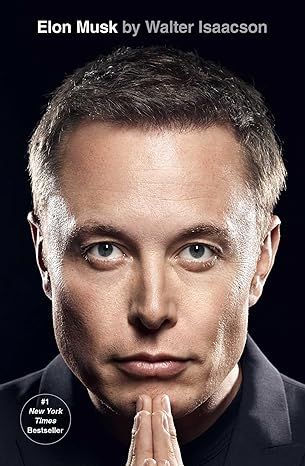
Elon Musk
4.7
-
15,272
$16.99

Just for the Summer
4.6
-
19,524
$11.99
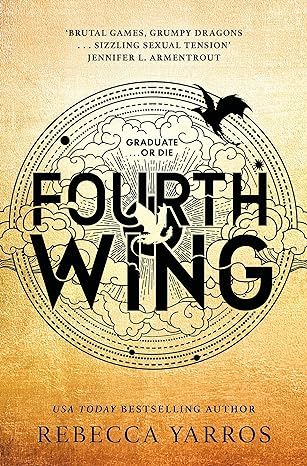
Fourth Wing (International Edition)
4.8
-
206,495
$7.95
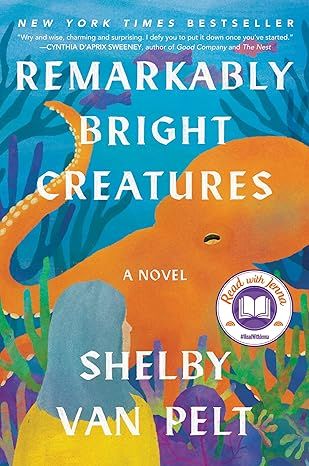
Remarkably Bright Creatures: A Read with Jenna Pick
4.6
-
65,556
$15.80
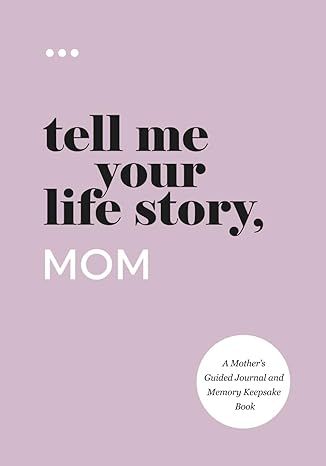
Tell Me Your Life Story, Mom: A Mother’s Guided Journal and Memory Keepsake Book (Tell Me Your Life Story® Series Books)
4.7
-
5,107
$11.24
